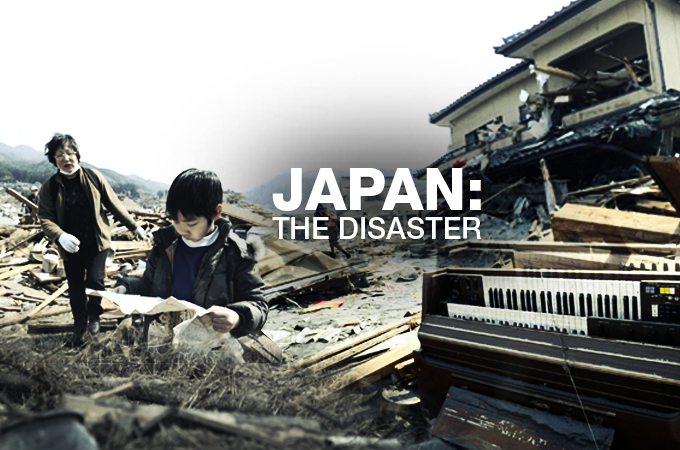Japan downgrades economic outlook
Cost of rebuilding disaster-devastated region estimated at $295bn as government says economy is in “a severe condition”.

The Japanese government has downgraded the country’s economic outlook for the first time in six months due to the fallout from the earthquake and tsunami that ravaged parts of the country’s coast.
The country’s cabinet office cut its assessment of the world’s number three economy in light of the March 11 disaster that has killed more than 13,000 people and left over 14,000 missing.
 |
“The economy was picking up, but it has shown weak signs recently due to the impact of the Great East Japan Earthquake,” the cabinet office said in its monthly economic assessment. “It remains in a severe condition.”
Keep reading
list of 4 itemsTurtles swimming to extinction in Malaysia as male hatchlings feel heat
Could shipping containers be the answer to Ghana’s housing crisis?
Thousands protest against over-tourism in Spain’s Canary Islands
The disaster devastated infrastructure and manufacturing facilities, breaking key supply chains and bringing power shortages that have crippled production for Japan’s biggest companies such as Sony and Honda.
Toyota, the world’s largest automaker, said parts shortages would force it to halt production for several days at five European plants over the next two months after announcing similar steps at most of its 14 North America plants.
Teng Jimeng, a professor of foreign studies at Beijing University, told Al Jazeera that issues such as worries over contaminated food imports from Japan as well as the interrupted supply of auto parts will create “long term trade tensions between the two countries”.
“Auto parts from Japan have been suspended from Chinese assembly lines … I think China is very much worried over its over-reliance on Japanese industry,” said Jimeng.
The International Monetary Fund on Monday lowered its 2011 growth forecast for Japan – which has long battled sluggish demand, deflation, and high public debt – to 1.4 from 1.6 per cent, citing “large uncertainties.”
A costly recovery
Japan estimates rebuilding from the disasters will cost up to $295bn.
The government might adopt a method used to compensate the victims of the Three Mile Island accident in the US for claims stemming from the Fukushima Daiichi nuclear crisis – where the damaged plant continues to leak contaminated water used to cool fuel rods – by asking domestic utilities to pay part of the damages, a local newspaper reported.
Tokyo Electric Power Co. (which operates the Daiichi plant) is yet to determine the costs, but Bank of America-Merrill Lynch late last month estimated the company could face compensation claims of more than $130bn.
TEPCO shares jumped 10 per cent after the Yomiuri newspaper said the firm’s liability might be capped at as little as $24bn for damages stemming from its crippled nuclear plant.
Angry residents forced from their homes near the Daiichi nuclear power plant protested at TEPCO’s headquarters in Tokyo on Wednesday, demanding compensation as the company’s president, Masataka Shimizu, pledged to do more to help.
“I can’t work and that means I have no money,” said Shigeaki Konno, 73, an auto repair mechanic, who lived 11 km from the nuclear plant before the area was evacuated due to leaking radiation.
“The talk about compensation is not concrete. We need it quickly.”
Levels of radiation in the air, soil, water and sea have fluctuated constantly, sometimes to levels several millions of times above the legal limits. The most recently reported samples, from Tuesday, showed radioactive
iodine up to 2,500 times the legal limit.